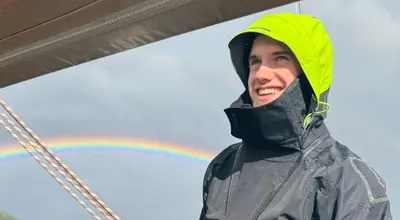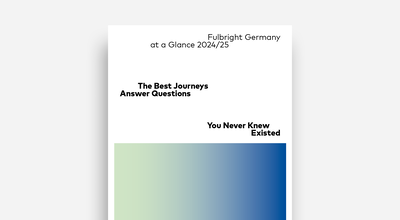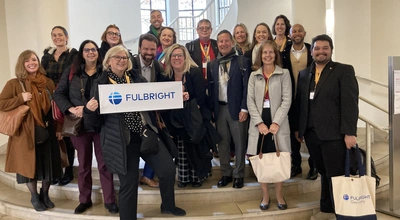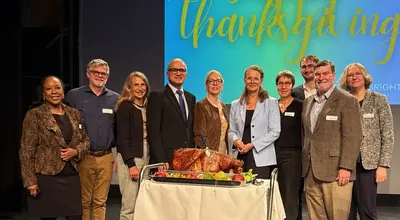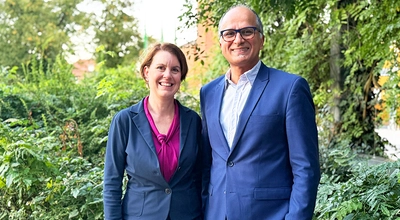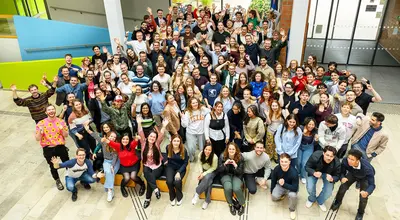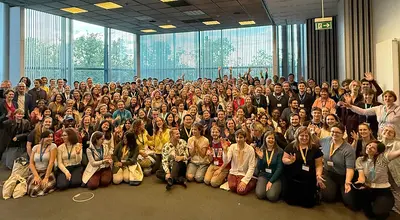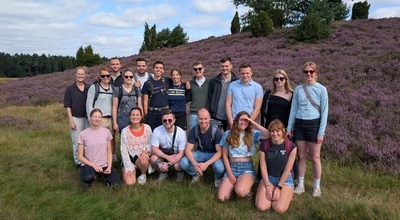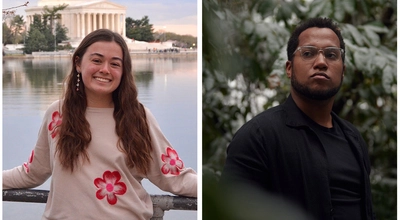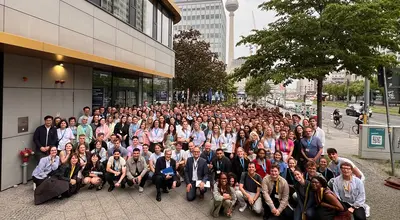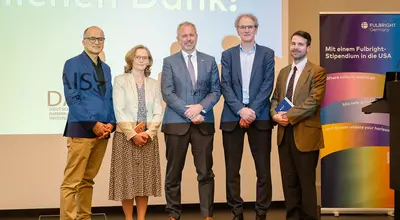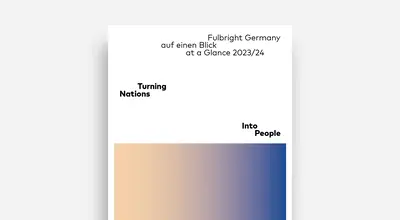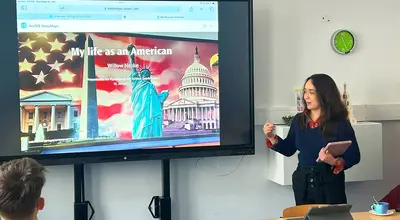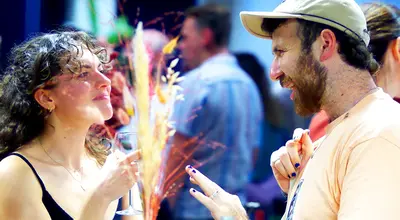Learning about International Institutions in Difficult Times
By Jacob Boyd Johnson | Grantee Experience (Study and Research for U.S. Students at a German University)
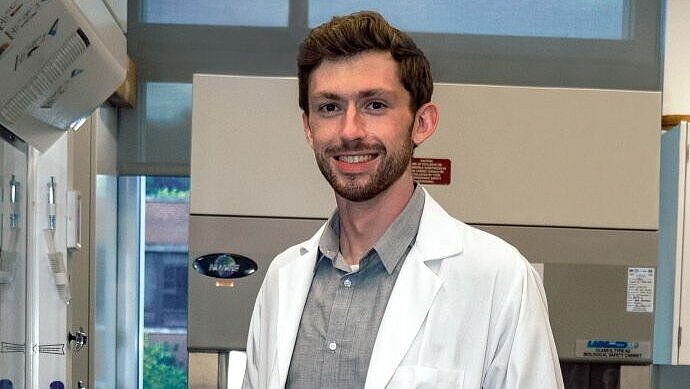
Focusing on global public health issues Jacob Boyd Johnson currently investigates the effects of ocean pollutants on shrimp and fish at the Ludwig-Maximilians-Universität München. He applied for the Fulbright EU-NATO Seminar to learn more about international collaboration.
“The Fulbright Commission in Brussels, Belgium recently hosted a virtual seminar on the European Union and NATO. I had the privilege of being one of two current grantees nominated by Fulbright Germany to attend, alongside Fulbrighters from Iceland to Ukraine and many European nations in between. The seminar’s primary goal is to teach Fulbrighters why the European Union and NATO exist, and how these institutions fulfil their purpose. During the three-day seminar, we talked with representatives from the EU, NATO, and the U.S. Mission to NATO.
This seminar came during a critical time as the EU and NATO were launched increasingly into the spotlight of world news. I knew relatively little about the structure of the EU and NATO outside of occasional information I read online or heard in the news, which could often contain questionable perspectives. However, over the course of the seminar I developed a clear understanding of the purpose of NATO and the EU, as well as the scope of their individual powers. It was immensely informative to learn directly from the people who work in these institutions. The structure and functions of the EU and NATO are uniquely their own and come with their own nuances. We also learned how history and national interests continue to shape these institutions.
Participants often had discussions with the presenters about history, current events, and career development, but there was one topic that permeated the discussions: the Russian military buildup on the Ukraine border. The seminar took place less than one week prior to the Russian invasion of Ukraine, a very uncertain time that left a sense of unease across Europe. During our discussions, we gained perspectives from people intimately involved in the EU and NATO, both of which continue to be at the forefront of the current conflict. We also talked with Fulbrighters located in Ukraine, one of them in Kyiv during the time of the seminar. A Russian invasion into Ukraine was purely theoretical even during the seminar but has now become all too real. Even in Germany I can see the war’s effects as refugees enter by train, bus, and other means. Taken together, this was an invaluable if unplanned glimpse into the lives of people involved in the latest event in global politics.
I am very thankful for the opportunity to meet my fellow Fulbrighters across Europe, especially as we face the changing challenges of the world. It was great to hear from other Fulbrighters about life in their host countries, their view of current events, and their thoughts about the future. What we learned from the seminar has been made evident by recent events: international collaboration through the EU and NATO can bring great benefits to member nations. These institutions can also be used as forces for good around the world, but this requires the determination and involvement of the member states. As Fulbrighters, we get to experience international collaboration in our own ways, and I hope that we continue to have a positive impact in our host countries and use our experiences into the future.

